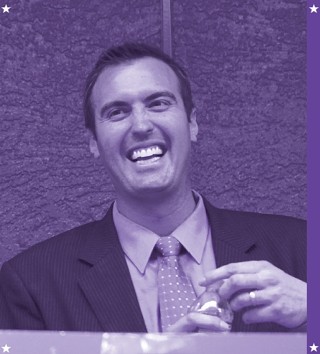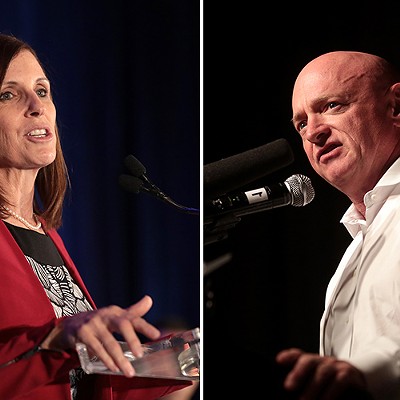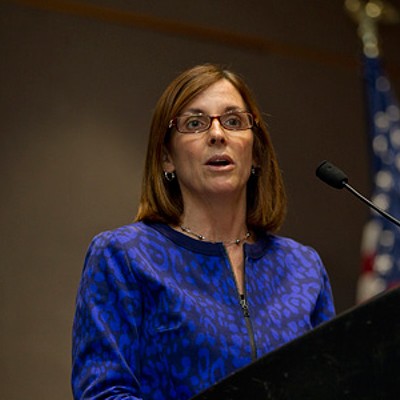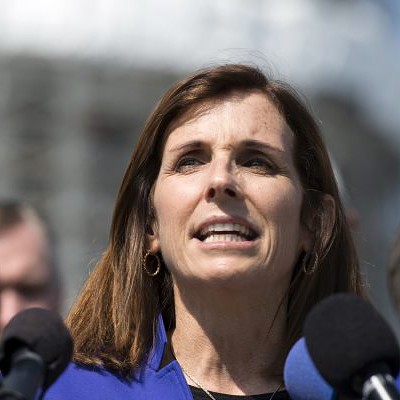Jesse Kelly is holding forth in front of the Republican voters of Precinct 388 in the Catalina Room of the Voyager RV Park.
He expresses outrage that the Environmental Protection Agency is full of "unelected bureaucrats who control your light bulbs and your toilets." He complains that banks are too scared to loan money to businesses, because "the federal government has its eye on every penny of it." He tells the crowd that the anti-business, big-government idiots in Washington, D.C., make too much money and "couldn't run a car wash."
This is vintage Jesse Kelly: He roars against a federal government that takes too much from everyone's wallet and squanders the money on foreign aid, the National Endowment for the Arts and NPR. He blasts regulations he says are preventing businesses from creating jobs. He complains that liberals are stealing freedom and desecrating the U.S. Constitution. And the only way to fix all of this and restore America's glory is by sending a straight-talking patriot to Washington to cut it down to size.
This is the political routine that helped the former Marine win the 2010 Congressional District 8 Republican primary over a better-funded, more-experienced state lawmaker, Jonathan Paton. And it brought him within a few thousand votes of unseating Democrat Gabrielle Giffords in a hard-fought general election.
Kelly, 30, had been planning a rematch with Giffords and was on the verge of announcing his intention to get back on the campaign trail when, on Jan. 8, 2011, a gunman opened fire in a Safeway parking lot, killing six and wounding 13, including Giffords, who miraculously survived being shot through the head. Giffords became a national inspiration; Kelly vanished from the political landscape, moving to Texas to work for his family's construction company.
When Giffords stepped down in January of this year, it set up a special election in Southern Arizona's CD 8, which includes the retirement enclaves of SaddleBrooke and Green Valley, the Democratic stronghold of central Tucson, Davis-Monthan Air Force Base, Fort Huachuca, and small towns such as Sierra Vista, Bisbee and Douglas.
It's a district with a Republican edge, but Giffords had held it since winning election in 2006, after Republican Jim Kolbe retired following 11 terms.
Candidates don't have much time in this race: Early voting in the April 17 Republican primary is under way as of Thursday, March 22. The winner of that contest will go on to face Democrat Ron Barber, a former aide to Giffords who has her endorsement, in the June 12 general election.
Thanks to the name ID he established in 2010, Kelly started out ahead of his potential GOP rivals. A poll by the political arm of the conservative nonprofit Citizens United, which has endorsed Kelly, showed that in mid-February, he had the support of 43 percent of likely Republican voters. That put him well ahead of state Sen. Frank Antenori (18 percent), businessman and sportscaster Dave Sitton (10 percent) and former Air Force fighter pilot Martha McSally (8 percent).
Early ballots are going in the mail this week, and given that this is a special election with nothing else on the ballot, an enormous percentage of the votes will probably be cast by mail.
Kelly's biggest challenge at this point is running out the clock before his opponents can introduce themselves to voters.
Despite his rhetorical gifts on the campaign trail (or perhaps because of them), Kelly is not the sort of candidate who has many conversations about policy with reporters. While he was happy to sit down with the press when he first hit the campaign trail in 2009, he now prefers brief email responses when interacting with newspapers, including the Arizona Daily Star and the Tucson Weekly.
His tax policy—"If 10 percent is good enough for Jesus, it's good enough for the federal government"—is a prime example of his approach: Kelly says the national debt needs to be tamed, but he also calls for dramatic tax cuts that would blow the deficit wide open. Kelly's tax plan calls for a flat 10 percent income tax on all Americans, so that everyone would get a tax cut.
However, since nearly half of all Americans don't pay any income taxes, a 10 percent income tax would actually constitute a tax increase on low-income and middle-class citizens, unless payroll taxes for Social Security and Medicare were included (and even then, 10 percent might be a hike). Asked whether he'd include those taxes in the 10 percent, Kelly said, "A simple 10 percent flat tax will take care of everything."
There's no easy way to score the fiscal impact of Kelly's plan, because the details are foggy—for example, he's under the mistaken belief that getting rid of the mortgage deduction would lower the average tax bill, when instead, it would increase it. On top of that, there's no serious proposal along those lines in Congress. (Even the king of supply-side economics, Arnold Laffer, says that to bring in the same amount of revenue as today's tax system, we'd need to pair an 11 percent flat income tax with an 11 percent sales tax.)
Kelly defended his tax plan in 2010 by promising to lower federal spending to fit whatever funds are raised by the tax. At a forum in Green Valley, Kelly explained: "And we constantly hear this lie that—well, I guess it's not a complete lie—that 10 percent wouldn't fund the government at its current levels. That's the idea! It doesn't need to be at its current levels."
But those are wonky details—and Kelly counts on voters not thinking too hard about his proposals. He hopes they like the sound of "10 percent flat tax" and don't stop to realize it would be a budget-busting giveaway to America's wealthiest citizens.
The thrust of the tax plan goes along with the central theme of Kelly's campaign, which has a powerful lure for GOP voters and independents: The federal government is too big, and needs to be shut down, because the United States is so diverse that the same rules should not apply from sea to shining sea.
Or, as he boiled it down at press conference announcing his new candidacy in February: "We need lower taxes (and) a strong economy. We need more jobs. That's what this campaign is going to be about."
But the same anti-government talk that helped Kelly in the GOP primary cost him the election in 2010. Team Giffords was able to paint him as an extremist who wanted to privatize Social Security and sock middle-income soccer moms with a new national sales tax of 23 percent.
Kelly griped that his positions were being distorted, but his loose words on the campaign trail and scattered policy proposals made it easy for Team Giffords to cite its claims, often with video evidence courtesy of YouTube.
On Election Day 2010, Kelly came closer to beating Giffords than either of her previous GOP opponents. She skated past the conservative Randy Graf in 2006, and the more-moderate Tim Bee in 2008—both of whom had been state lawmakers with campaign experience—by double-digit margins. Against Kelly, she won by 4,156 votes—little more than a single percentage point.
With the special election under way, Kelly tells voters he's ready to "finish the job." However, he has noticeably adjusted his tone on the campaign trail. This year, he's not likely to repeat a 2010 fundraiser at a shooting range—complete with the opportunity for supporters to fire an M16 rifle—that was billed as a way to "help remove Gabrielle Giffords from office." He's also less personal. Instead of saying things like, "Stay out of my toilet, Gabrielle Giffords!" (in reference to federal regulations about water pressure), he complains that nebulous Washington bureaucrats have no business in his toilet. And you're not likely to hear him say something, as he did at a 2010 forum, like: "Gabrielle Giffords, your time's coming, because you've had patty-cake played with you twice. We play to win. ... We're coming."



















